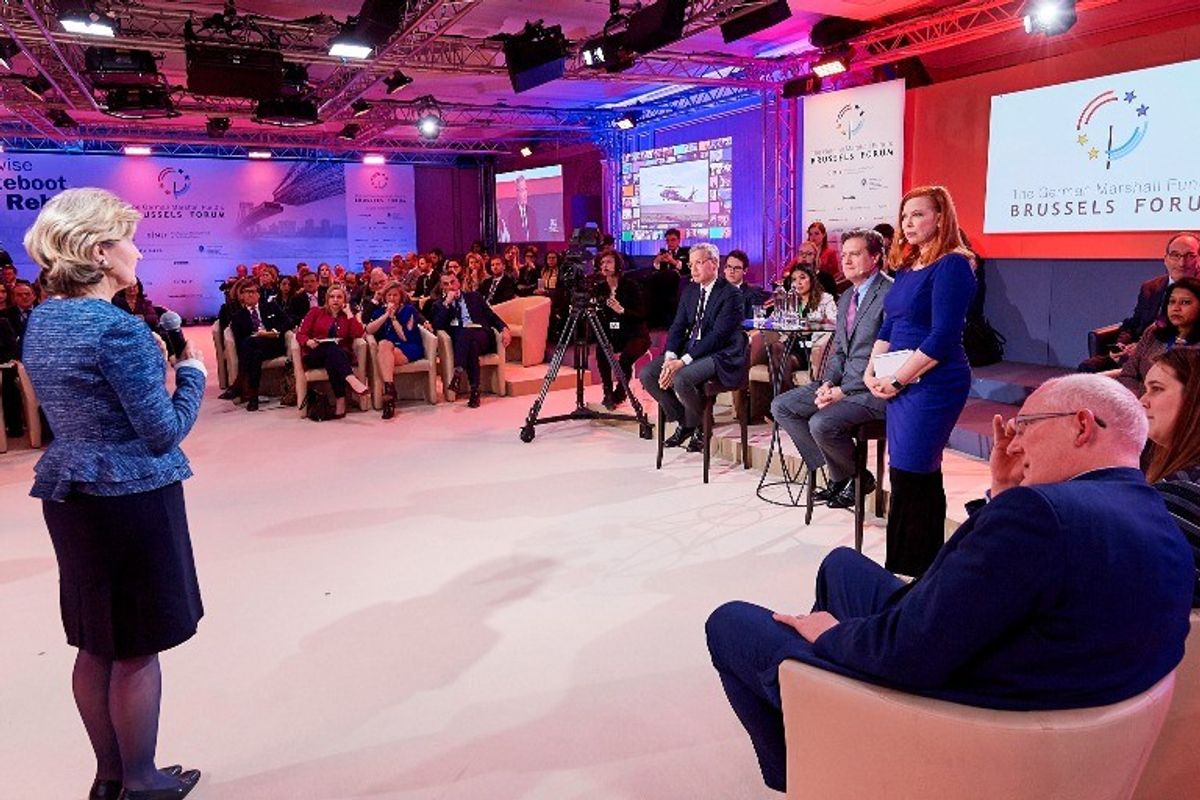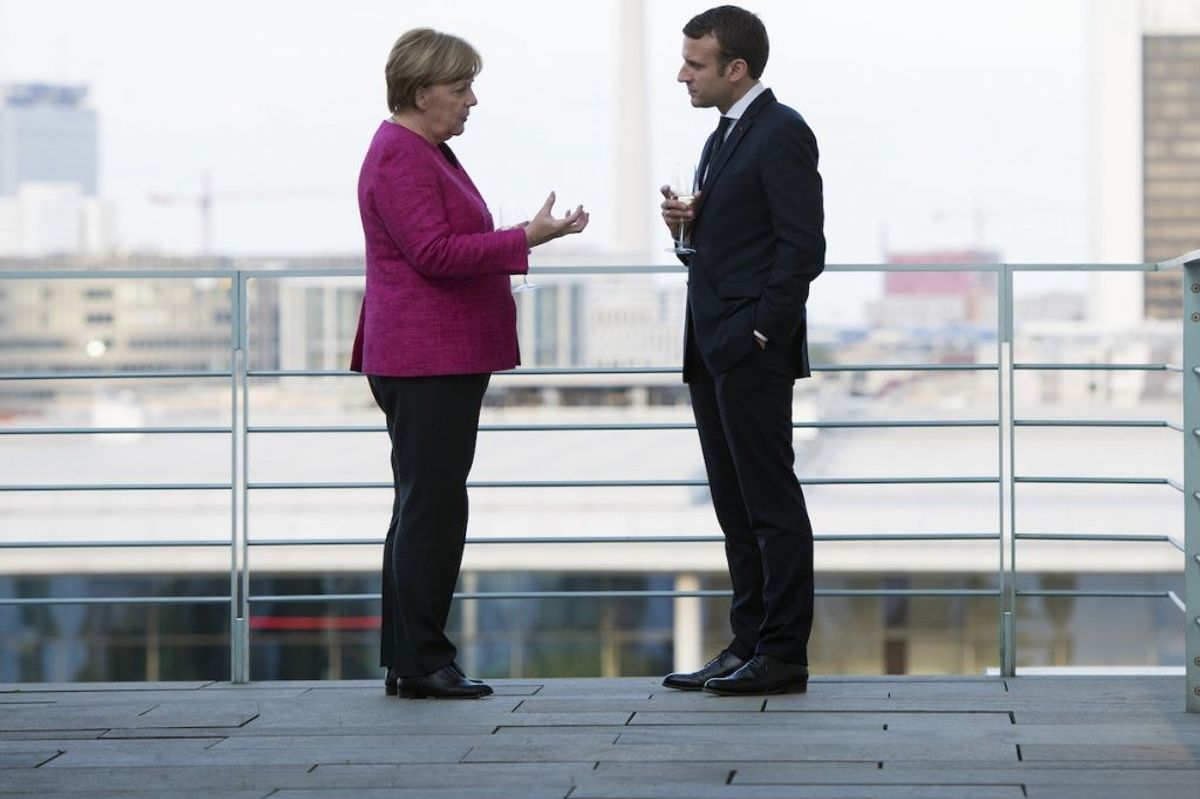Both the Brexit Remain and Leave campaigns are suspended today due to the murder of British Member of Parliament Jo Cox on Thursday. Cox belonged to the opposition Labour Party and was a vocal advocate for Britain remaining in the EU.
In six days, Britons head to the polls to decide whether they want to leave or remain in the European Union (EU). Domestic political concerns – in the past and in Prime Minister David Cameron’s call for an in/out referendum (that is, the “Brexit” referendum) – have always driven the agenda.
Sir Michael Leigh, the former Director-General for EU Enlargement at the European Commission and a Briton, summed it up by explaining that although the Brexit referendum can be seen as part of a wider populist trend across Europe, the real motivating forces for holding the referendum are deeply embedded in the British psyche: British history, geography, religion, and politics.
The sovereignty issue permeates Britain’s historic and current conflicting view of its relationship with Europe. The European project began after World War II, as an effort to maintain peace and stability on the continent. Geoffrey Harris, the Deputy Head of Office of the European Parliament in Washington, who spent decades in the European Parliament in Brussels, notes that Britain successfully held off the threat of a Nazi invasion and found itself in a strong position to influence developments in Europe. Britain was in favor of a European community for peace and stability, but only for the nations on mainland Europe, Harris told The Cipher Brief.
Geography also plays a role in shaping the British thinking on the EU. In his Bloomberg speech on 23 January 2013, when Cameron signaled he would support an EU in/out referendum, Cameron said, “It’s true that our geography has shaped our psychology. We have the character of an island nation – independent, forthright, passionate in defense of our sovereignty.”
There are three factors that are raising British concerns once again about the viability of its role in the EU. The debate is playing out against a backdrop of general discontent with the British government that reflects stagnant median income, growth largely in low-wage jobs, and fears that immigrants from Central and Eastern Europe are taking all of those low-wage positions.
One key factor driving British concern has been the fallout since the 2008 global economic crisis. When banking systems across Europe collapsed at the end of 2008 and through 2009, Eurozone countries – like Greece – could not make debt repayments to creditor nations – like Germany. This led to fierce political debates, negative interest rates, and a devalued euro. The British looked on in despair and gratitude, for they had not joined the Eurozone.
The failure of the European monetary union and the need for some sort of fiscal union to rectify past errors and prevent another large-scale financial crisis poses a special challenge to those in favor of Britain remaining in the EU. When Britain held its first in/out referendum in 1975 (just after it had joined the European community), the idea of being part of an entity that was economically stronger than the UK (that is, the European Economic Community), trumped the sovereignty issue. Britain voted “yes” to sticking with the common market by a margin of two to one. Now, roles are reversed, and the British would prefer to distance themselves from the economic turmoil of the Eurozone.
The Eurozone crisis provided a prime platform for the rise of Nigel Farage and his UK Independence Party (UKIP). Director of the UK in a Changing Europe Initiative, Anand Menon, described to The Cipher Brief how UKIP and domestic British politics instigated the current referendum: “The [Conservative] party is divided and was being attacked from the right by the pro-Brexit UKIP party. Promising a referendum was a way of kicking the can down the road, preventing Europe from becoming a major distraction during the last parliament, and helping Cameron win in 2015.”
The migration crisis is another factor that has added fuel to UKIP’s fire and has become a focal point of the upcoming referendum. “The number of EU immigrants coming to the UK is a major issue for the referendum. Prime Minister Cameron had promised to reduce EU migration, but it has reached an all-time high. The reason that some Britons want to leave the single market (to participate in the single market, a country must agree to the freedom of movement of labor) is to address EU migration,” says Heather Conley, a Cipher Brief expert and Senior Vice President for Europe, Eurasia, and the Arctic at the Center for Strategic and International Studies.
A third exacerbating factor to the Brexit vote is the increase in terror attacks on mainland Europe. Cipher Brief expert and former Director of Intelligence Analysis for the NYPD Mitch Silber explains, “The two spectacular attacks in Paris, as well as the most recent attack in Brussels, have already heightened security fears in the UK about the risks of remaining in the EU.”
Cameron’s decision three years ago to signal he would move forward with a referendum was never intended to actually end up with Britain leaving the EU. Cipher Brief expert Erik Jones comments that Cameron’s Brexit debate was supposed to get people talking about the bigger European project, to develop a feeling of solidarity. Instead, the debate has deteriorated to a discussion about the details, rather than the big picture, says Jones, who is the Director of European Studies at The Johns Hopkins School of Advanced International Studies (SAIS).
Now, there’s the potential that Britons could vote against the government and decide they want to settle the Europe question once and for all by leaving the EU. As former British Prime Minister Tony Blair said in a recent BBC documentary, “Britain’s problem with Europe is that we didn’t invent it and weren’t there at the origin, and as a result of that we’ve always felt that Europe was something kind of done to us and something that we were always somewhat on the fringe of.”
Kaitlin Lavinder is an International Producer with The Cipher Brief.











